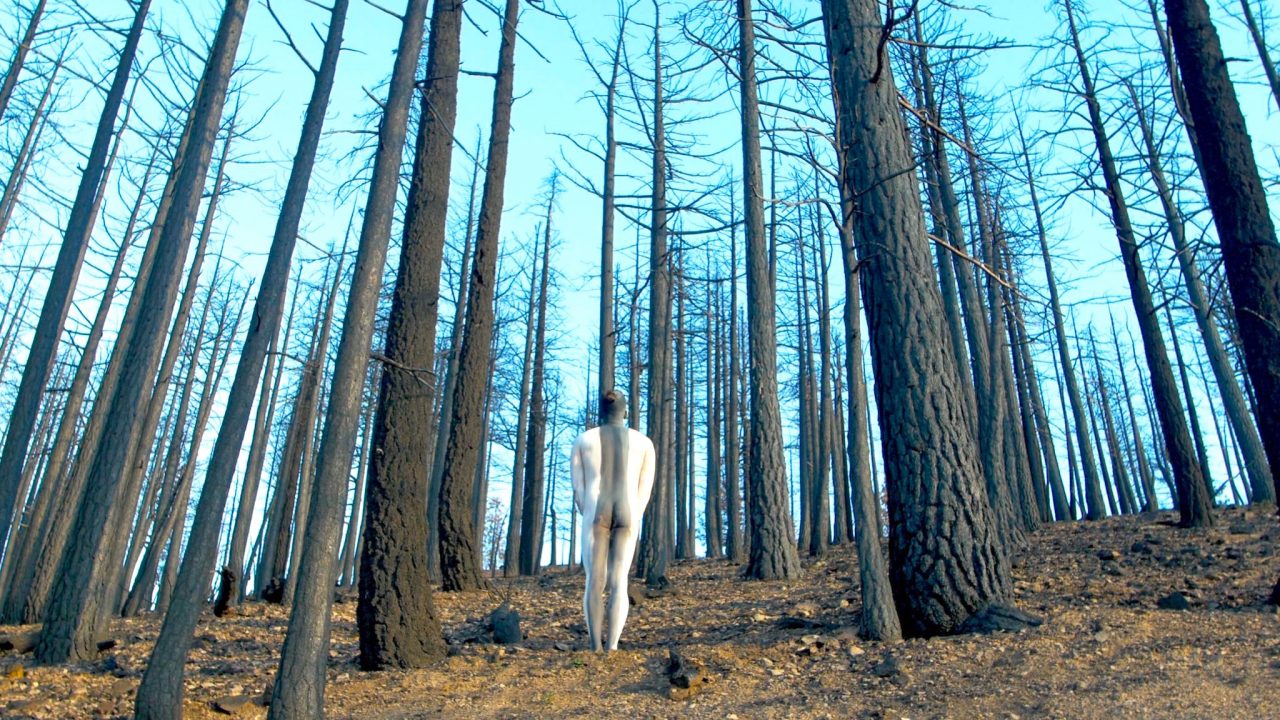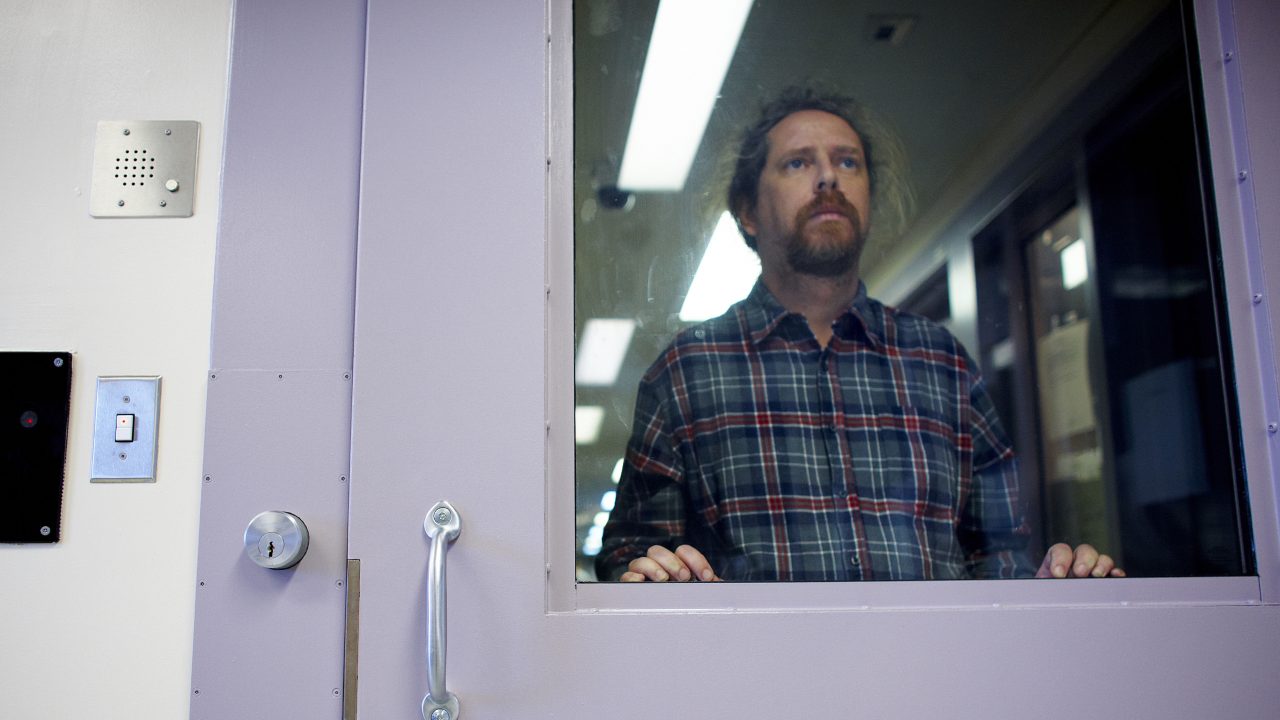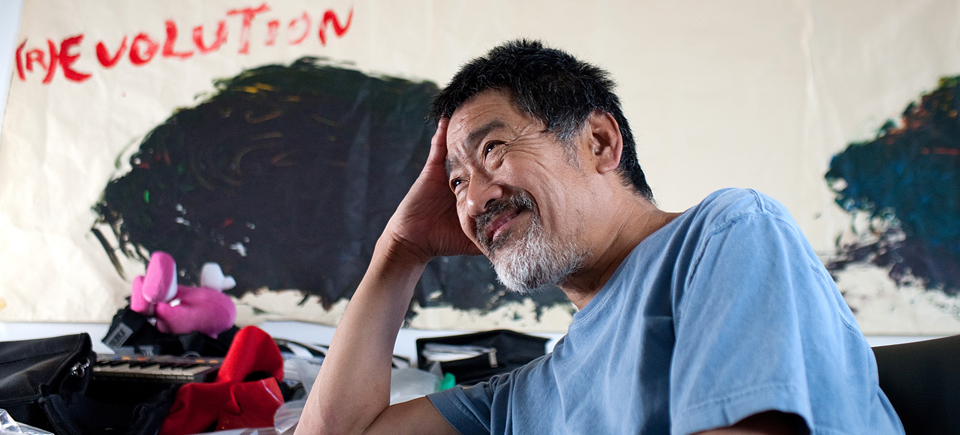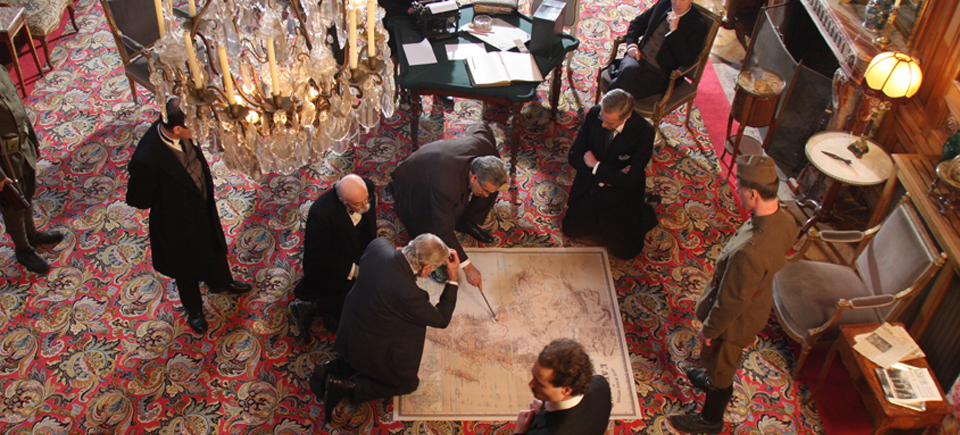Q&A with director Garry Beitel on documentary filmmaking

A couple of weeks ago, I sat down with documentary filmmaker Garry Beitel to do an interview for The Socalled Movie, his film about artist/musician Josh Dolgin (Socalled), which just wrapped production last month. Once I had him captive, I threw in a few more general questions for the series I’m running on this blog.
Garry was actually a teacher of mine at McGill, and I have very fond memories of his classes. His love for documentary filmmaking was always evident and his passion for the craft contagious. Even though he’s no longer teaching, which is criminal in my opinion, it was great to see that his enthusiasm for his work hasn’t waned in the slightest.
JM: What led you to become a filmmaker?
GB: I started shooting films when I was at McGill in the late ’60s, student revolt stuff. I ended up being more involved in recording events than participating in events. In many ways I was very shy and using a camera in places that I wanted to be was my ticket to get in. I had a reason for being there. Without it, it was like, “What am I doing here?”
In the early days, it was all about politics. I was very much involved in the ’60s and ’70s and feeling the world had to change and I was going to do something to change it. And I started doing that with video in a very Challenge for Change way in the early ’80s when I got involved with an educational collective, people who were making videos about racism, the environment and the third world and were getting government subsidies to create videos that we would then go into the schools with.
I did that through the ’80s until I got very tired of the whole collective process, reaching consensus among 12 people before deciding which angle I was going to shoot from and who was going to speak. I also realized I was developing skills. My desire to be a filmmaker, which had been emerging in the ’70s, had gotten diverted for the ’cause’ and in the process I had gotten good at what I was doing. I decided to leave the environment and see if I could make films on my own.
Shortly after that, I made Bonjour, Shalom, which became a calling card film for me because it garnered a lot of attention, a lot of awards and I started to feel like, “Oh, I am a filmmaker, not just an activist.”
That distinction became clearer, but the desire to make films that have an impact on people has always been part of what I’m doing.
JM: What does being a documentary filmmaker involve?
GB: Every day is different. It depends on what stage I’m at in the process. At first you’re developing ideas. Ideas will either come from your own imagination or someone will suggest something to you or they might result from an accidental meeting with someone. You then have to develop that idea into a concept and then write a proposal.
Because I work as part of my own company [with producer Barry Lazar] once the idea is in place, we have to find financial partners.
JM: How do you find financing for your films? Do you find yourself working with the same partners on a regular basis?
GB: Like anything else, it’s about building good relationships, so it’s a lot easier when you know the players involved. The Socalled Movie is my fourth project with the NFB, I’ve done about 5 or 6 with Télé-Québec. But some projects are submitted completely blind to broadcasters.
I have made films with very limited financing in the past simply because I was completely taken with the subject of the film and committed to making it. Sometimes I’ve done it without any financing at all. But because I also see this as how I make a living, I try to do that as infrequently as possible.
I want to get a film idea and build a financial structure so we can get the budget in place and shoot it as we want to. Films we don’t get the money for I end up shooting myself. I’m not a cameraman. I can shoot, but I’m not a cameraman. I like working with good cameramen and camerawomen. I like working with strong collaborators.
JM: How big is your crew?
GB: Camera, sound, producer, occasional production assistant, me, the editor and the full post production staff. I like working with skilled people. To that end, I try to raise the necessary financing by developing relationships with the key players who finance documentaries, whether that’s the Film Board, broadcasters or other funding agencies.
JM: So many people outside the industry who want to break in feel it’s impenetrable. What are your thoughts on that?
GB: There’s this curious phenomenal that some of the greatest documentaries made are first time films. An idea came to them and just by the force of their commitment to it they were able to convince one other key person who had contacts and was able to build on the project.
If you’ve got a really strong idea, you go with it. You do a little bit of shooting, you put together a demo reel, you find someone who can intervene and take it to the next step. That person can be a producer, broadcaster, sometimes a distributor or even just another filmmaker who might have contacts they introduce you to. But you’ve got to come to the table with something compelling, either a story or images or a demo or a rough cut.
There are so many great first films – Roger and Me, for example [Michael Moore’s first film]. I can name half a dozen other first films that people just made that are landmark films. I think the main ingredient is passion.
JM: How do you select your projects?
GB: With great difficulty. I don’t select very many. I don’t even know how it happens. I made a film a couple of years ago at the Film Board called Nothing Sacred, about Terry Mosher (Aislin), the cartoonist at the Montreal Gazette, and Serge Chapleau, the cartoonist at La Presse in which they both describe their process. They have to come up with an idea every day for an original cartoon.
Terry Mosher comes to work with the five stages of a cartoon already worked out in his mind, unless there’s something in the news. If that doesn’t work, he’s got this little book that he pulls out with 15 other possible ideas. Very systematic.
Serge arrives at work with no idea what he’s going to do. He opens up his drawing pad and sits there with his pencil in his hand thinking, “Oh, my g-d. I’m never going to come up with another idea again. I’ve already used my best stuff. I’m such a fraud. What am I doing here?” And he says the only way he begins is to draw a line on a piece of paper. And somehow, another line follows that and before you know it, you have a rough draft of something.
I’m much closer to the Serge Chapleau model of working.
Somehow, and I’ve managed to keep working for 30 years now. There have been gaps in my schedule, but not long ones. And I get anxious. Like right now, I should know what I’m doing after The Socalled Movie is done. We’re in June, the film will be finished by March, I know it takes about six months to get a project going, so if I don’t want to have six months without work at the end of this project, I should have another project ready to go. But I don’t.
But you know, a few years ago I was in the same situation. I was finishing off a film and I bumped into the guy who runs Café Santropol, and he tells me about Santropol Roulant. They’re hiring 20 people to work for 6 months to deliver meals to the elderly. This was in 1998, and 3 days later I’ve got my next project, Bittersweet Deliveries. I just started filming because I couldn’t wait for anyone else to get involved in the project. So I took out a camera, and Barry [Lazar] was on sound and we started shooting. The funding came into place for that film and it became what I did for the next 9 months.
So, you know, I don’t work on concepts. I don’t make concept films. I’m looking for stuff that’s going to gel for me.
JM: What advice do you have for aspiring filmmakers?
GB: There are two possible routes you can take – film school or just go make your film. Both routes are equally valid depending on your personality.
If you have the resources and the discipline to go to film school, it’s an opportunity to step into the world of making films with the proper supervision and connection to other young people with the same aspirations. You get an introduction to the whole world of filmmaking. You’re immersed in that world. If your personality and background allow you to go and do that, do it. But a lot of people can’t, because they lack the means or discipline to work that way.
In that case, either make short films with one of the many mini-cameras that are available or get involved by interning. But you have to be willing to do unpaid work for the experience of being immersed in that world.
Whatever you do, step into that world with your own projects developing at the same time. That way, you’re listening, absorbing and at the same time you’ve got something you’re ready to bring to the table.
***
Want more? Read my interview with Garry about Josh Dolgin and The Socalled Movie on the Socalled blog.



